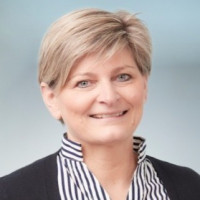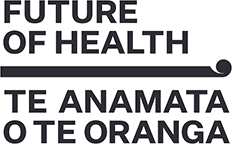People of the Transition Unit – Helen Parker
Helen Parker came to Aotearoa in 2013 for a short time...and never left.
She has joined the team helping to lead the development of the locality approach, leveraging off her 30-plus years of experience in health.

Helen Parker
Tell us a little about yourself
I’ve been fortunate to have three distinct but related careers in health, clinical, managerial and academic environments. This has given me exposure to how different countries and cultures approach health and health services. I qualified as a nurse in 1986 in the UK and spent some time in acute hospital care before taking a Specialist Practitioner degree in Community Health and District Nursing. I then moved into NHS community services commissioning and provider management roles. Completing a Masters degree in primary health care policy and management triggered my passion for how health systems work and develop. I have spent the last 15 years in consultancy, policy, academic and general practice ownership roles. I moved to Aotearoa late 2013 (just for two years!) and have worked at Pinnacle Midlands Health Network since then, now in my third year as CEO.
What’s your role as part of the health reform?
I’m on secondment to the Transition Unit as Co-Director, Localities which is great as it brings all my ‘careers’ into one role! The locality approach to improving health outcomes and addressing inequities is an opportunity for the sector to really think through what we know works...and what doesn’t…but also to transform and innovate in partnership with the Māori Health Authority, Iwi Māori Partnership Boards and other sectors that play a role in health outcomes.
I’m really enjoying working with Transition Unit colleagues and seeing how policy and reform intent can be shaped into something that makes sense to diverse communities and those who plan and deliver care.
What are you working on at the moment?
The Localities team is focused on getting the locality prototypes established early next year to test and refine the locality model to inform the national roll out. This includes recruiting a team to drive the locality approach, developing the framework for locality planning with Transition Unit colleagues and establishing an environment that will support lessons and insights to be gained from the locality prototypes.
We’re also planning the prototype evaluation which will be a critical component to development of the locality approach, capturing the impact on the intended system shifts and overall population health.
What happens next?
Top of our list is selecting the protype localities based on the agreed parameters and criteria. We will then be working to establish the supporting infrastructure to ensure they are successful.
What is your advice to the sector?
Those who have been through major system reforms before know it can be messy and uncomfortable for a while, especially for those who thrive on the detail. But if we keep focused on the ‘why’ we’ll ensure its not reform for reform’s sake. As a wiser person than me once said, it’s hard to put people, whānau or communities at the centre if you are standing there yourself. As health professionals we’ll need also to shift to see the change we want to see.
